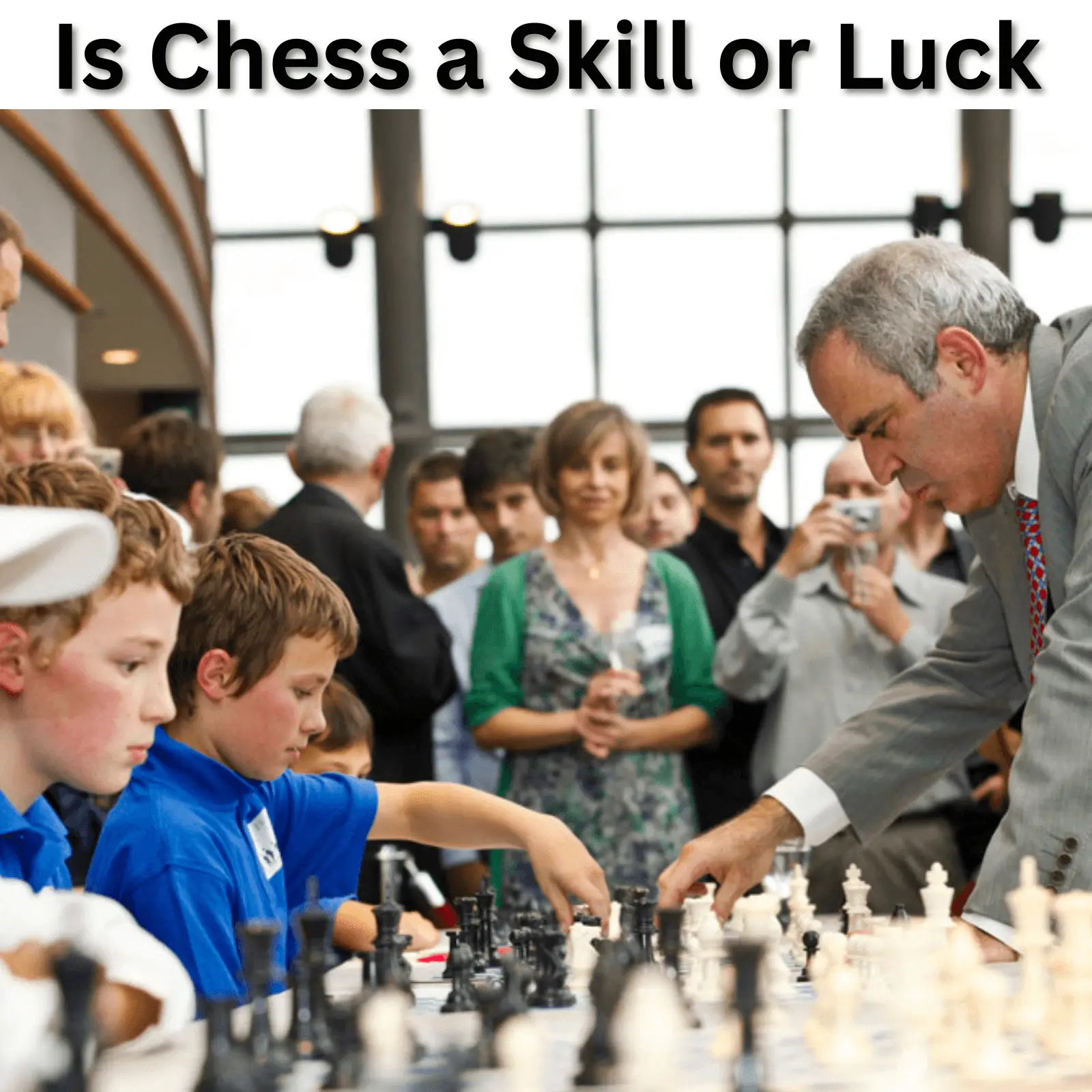
Is Chess a Skill or Luck
When most people think of chess, they think about a game that requires skill and knowledge above luck and chance. Chess players are highly respected for their dedication and intellect all over the world, a strong player will almost always win against a weaker player right?
It’s obvious to even the most casual observer that chess is a game of skill but is there a degree of luck involved in the game? And if so how much is it? We’ll delve deep into this topic and more in this article so keep reading!
What Type of Game is Chess
At first chess might appear to be a game completely devoid of any randomness. Chess is probably one of the most if not the most rational of games right? With no hidden information, dice rolls or a deck of cards, chess is strictly defined as a game of skill.
We’re definitely not going to wake up one day to news of chess being banned anywhere for being considered a game of chance, no one in their right mind would do that.
“A good player is always lucky” – Capablanca
And still, it’s not uncommon to see references to luck when talking about chess. Here we have a famous quote by Capablanca talking about it. It’s weird right? A game of skill by all accounts and yet everyone seems to have an opinion on the role luck plays in a game of chess.
Maybe it’s a way for us to deflect from having a bad game, or a way for us to be polite in the face of an opponent’s blunder. Whatever it might be, we can’t deny the fact that there is some luck involved in chess.
It might not look like luck at first, it could be as simple as our opponent not feeling well that day, or while playing online we might disconnect because of a bad connection. Whatever it might be, luck in chess does exist. It might not be as blatant as in other games or as influential but it’s there.
Luck in Chess
Luck is the phenomenon and belief that defines the experience of improbable events, especially improbably positive or negative ones. There are different ways to interpret luck, but going forward we should define luck as: anything that either hinders or helps us win a match of chess that we didn’t plan for.
Let me illustrate this point with an example:
Player A and B are equally matched, in this hypothetical tournament A and B drew all their matches. Another third player C is a good chess player, but is very nervous because this tournament is his first time playing at this level.
Player C’s first match of the tournament is versus A, while his last match is against B. Because he was so nervous when playing A, he didn’t really put up much of a challenge. But after a couple of days playing, he grew into the tournament and played B at his best. He did much better, he even drew a couple of times after overcoming his nerves.
The tournament ends with Player A as the winner, at the end both A and B were equally matched when they played each other. But in the end A got “lucky” and faced C while at his worst while B got unlucky and drew versus a much improved C.
I hope that example was clear enough. There are factors outside of our control that can change the course of a game. We’re not saying chess is mainly luck but we’re saying that it is there and it can be quite significant.
Margins are tight in competition, everyone prepares the best they can but sometimes things happen outside our control that influence the course of a match.
What About Elo or Glicko
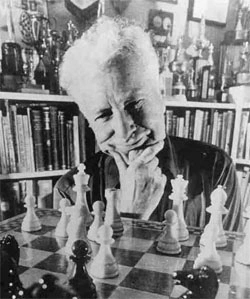
The definition of the Elo rating system itself will give us a few clues as to how much luck is involved in your average chess match.
The difference in the ratings between two players tells us how much of a difference there is in skill.Two players with equal ratings who play against each other are expected to score an equal number of wins. A player whose rating is 100 points greater than their opponent’s is expected to score 64%; if the difference is 200 points, then the expected score for the stronger player is 76%. And so on.
The Elo rating system has been widely used in all kinds of games, sports and even some interesting apps (Tinder comes to mind). It works quite well, but even this rating system assumes that both players are at their best, with no outside factors influencing the outcome of that match.
Real life isn’t like that, there are many reasons why a player might not “show up”, for example they could not be trying their best, in which case their rating would not be an accurate indicator, or they could be facing an unfamiliar opening, there are many things that can get in the way of a perfect prediction.
But even with all these improvements, neither system is perfect, there will always be things other than what the numbers show that influence a match.
Luck or Skill
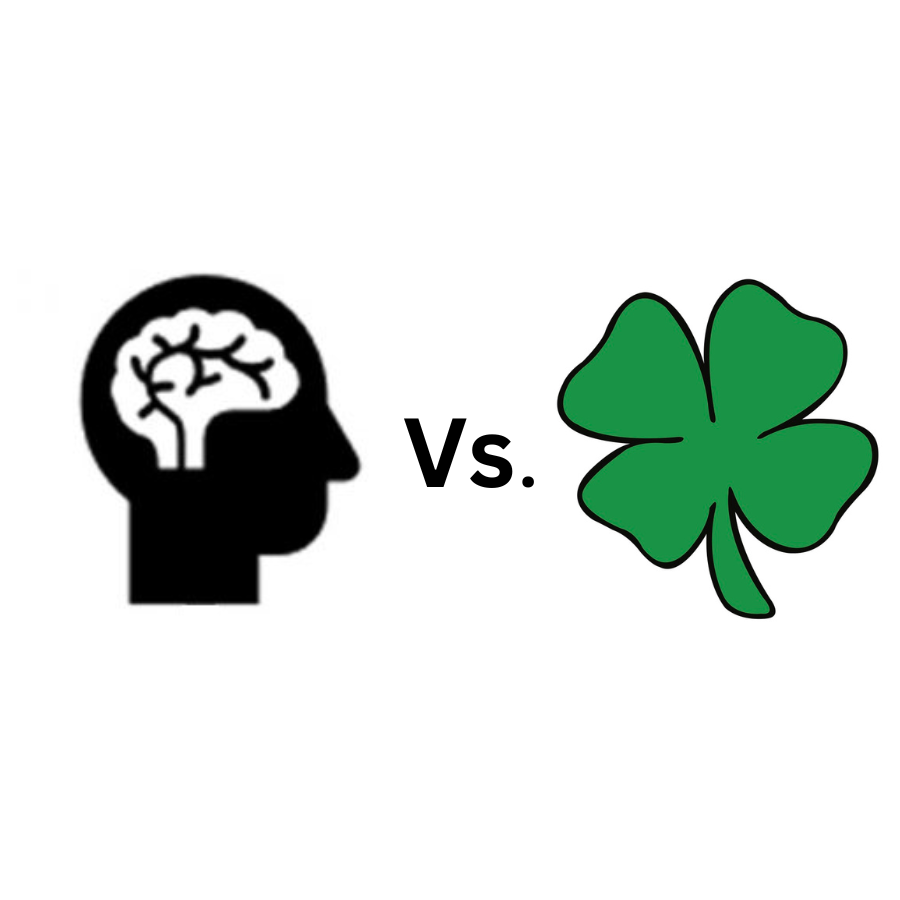
The closer both players are in skill, the more luck determines the winner. Don’t believe me? then let’s take a look at first-move advantage.
White consistently wins slightly more often than Black, usually scoring between 52 and 56 percent. White’s winning percentage is about the same for tournament games between humans and games between computers; however, White’s advantage is less significant in blitz games and games between lower-level players.
Assuming you play more than one match, whoever gets to play white more often will have a higher chance of winning, in theory at least. Remember this when playing black next!
On the other end of the spectrum, if Magnus Carlsen was to play a 1860 rated player (so about 1000 points below his rating) his chances of winning is actually exactly 99.68%. That’s the world champion and arguably the GOAT chess player and even then he could in not win 100 out of 100 matches versus a player that is so much weaker than himself.
Conclusion
Chess is a game of skill and strategy, not luck, there are no random events in a match, the result will be decided by the moves both players choose. And yet there is a degree of luck involved in this logical game. How much is up for debate but we can’t deny the fact that it is higher than 1%.
We already went through the many examples on how a match could be influenced by things outside the moves themselves, from a player not being capable or willing to try his best to how much first-move advantage matters when players are evenly matched. The results are clear: there is some luck in chess, it’s not too big but it’s there.
We’re not going to group chess next to poker and say it’s outside of our hands when we lose a match. But what we’re going to do is be honest about the fact that life (and chess) is not as black and white as we want it to be.
Chess is an amazing game, it imitates life in many ways and like life there are some things we can’t control and that’s OK. No matter what, chess remains the most logical of games and it’s a testament to how deep it is that even with the most advanced computers the game is not solved yet! (see checkers for a solved game).
I hope you enjoyed reading this post, it really would help us out if you took a minute of your time and left us a comment down below, thanks!
Related
- Is Chess Just Memorization
- At What Age Do You Stop Getting Better at Chess
- What Should A Chess Beginner Learn First
References
You may also like
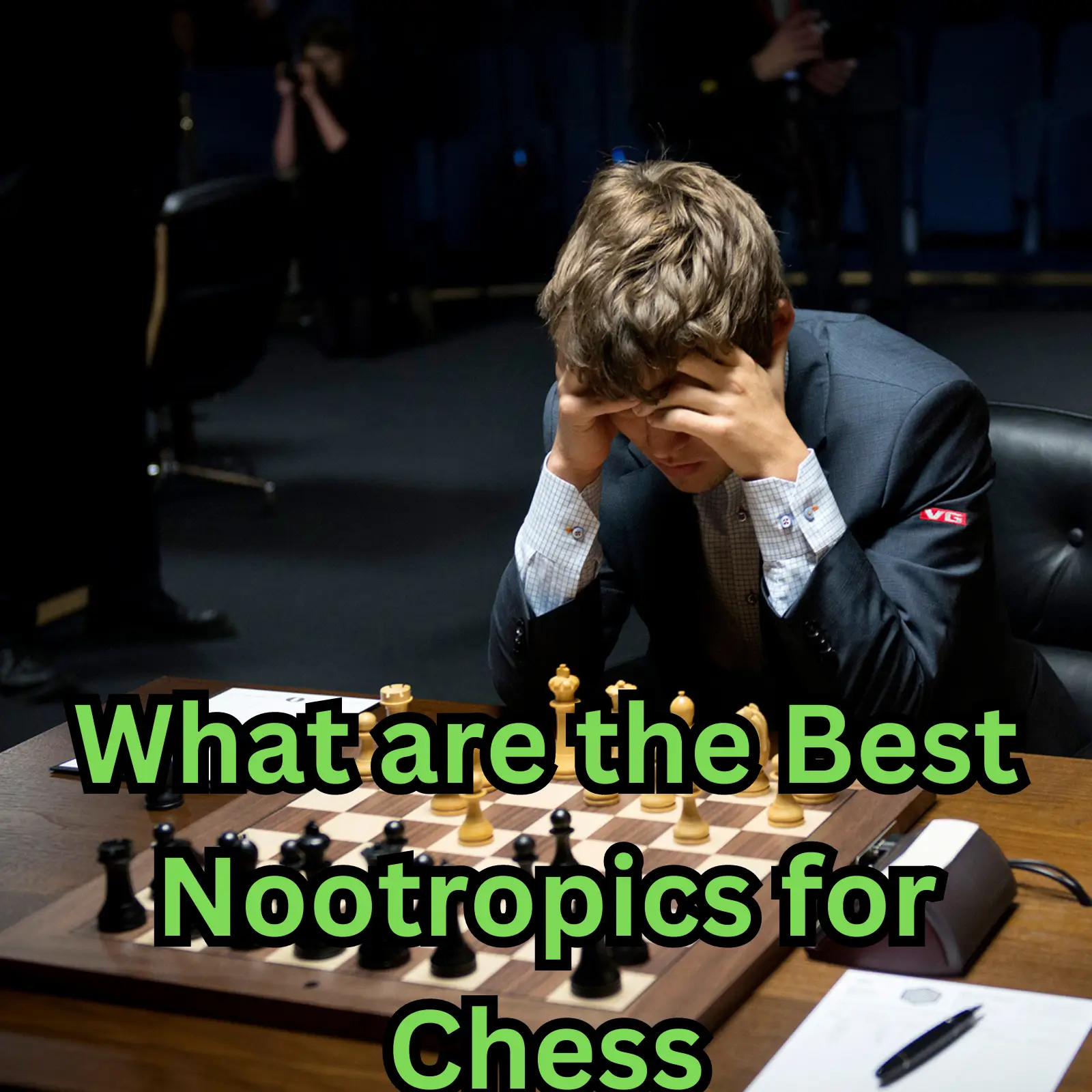
What are the Best Nootropics for Chess
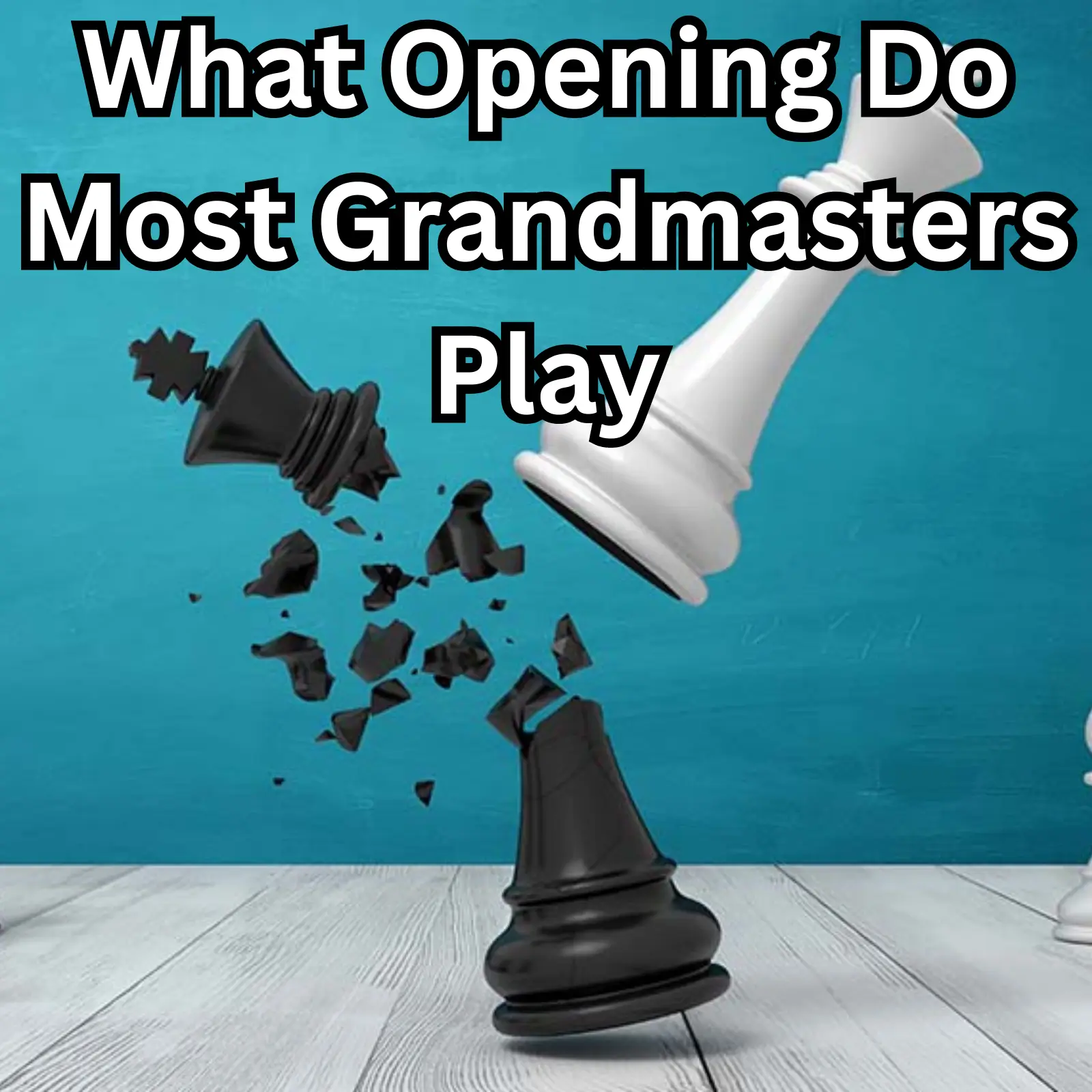
What Opening Do Most Grandmasters Play
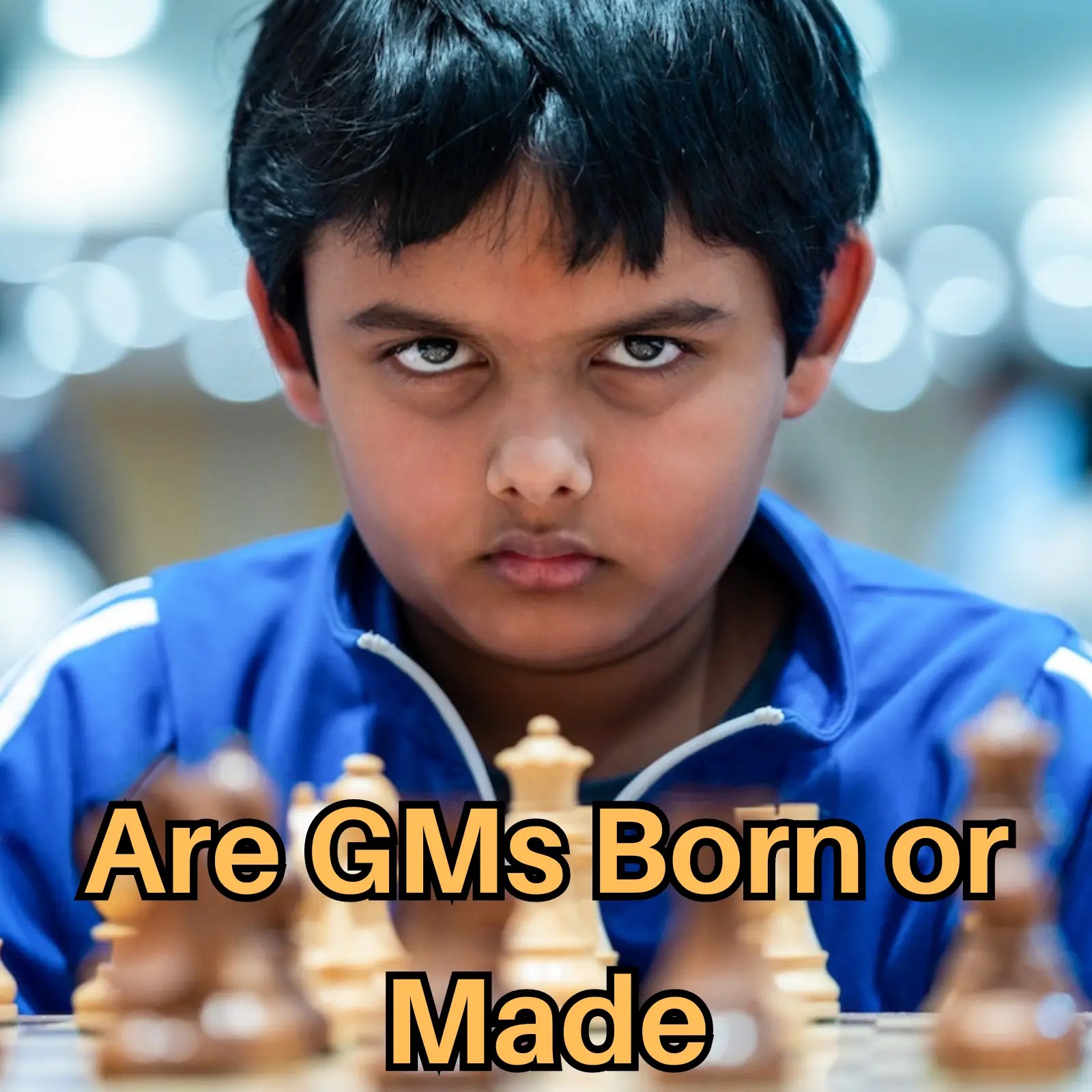
Are Grandmasters Born or Made
Archives
- February 2026
- January 2026
- December 2025
- November 2025
- October 2025
- September 2025
- August 2025
- July 2025
- June 2025
- May 2025
- April 2025
- March 2025
- February 2025
- January 2024
- October 2023
- September 2023
- August 2023
- July 2023
- June 2023
- May 2023
- April 2023
- March 2023
- February 2023
- January 2023
- December 2022
- November 2022
- October 2022
- September 2022
- August 2022
- June 2022
- May 2022
- April 2022
- March 2022
- January 2022
- December 2021
- November 2021
- October 2021
- August 2021
- November 2020
- July 2020
- May 2020
- April 2020
- March 2020
- August 2018
- July 2018
- June 2018
- April 2018
- March 2018
Categories
- Aftercare Procedures
- Age Groups
- AI/ML
- Alternative Medicine
- Ambient Computing
- Animal Health
- Animal Husbandry
- Animals
- Anti-Aging
- Architectural Design
- Art And Technology
- Auditory Science
- Augmented Reality
- Automation
- Babies
- Baby
- Beauty & Skincare
- Beauty Industry
- Biohacking
- Biomechanics
- Book Reviews
- Breastfeeding
- Budgeting
- Budgeting Strategies
- Business
- Cardiovascular Health
- Career Advice
- Career Development
- Career Growth
- Cats
- Chess
- Chronobeauty
- Circular Economy
- Civic Technology
- Cleaning Tips
- Cloud Computing
- Cognitive Health
- Cognitive Performance
- Cognitive Science
- Community
- Community Building
- Community Engagement
- Community Living
- Computer Vision
- Consumer Guides
- Consumer Trends
- Container Gardening
- Content Analysis
- Content Non-Technical
- Content Strategy
- Cooking Techniques
- Cosmetic Chemistry
- Cultural Events
- Cycling
- Data Analysis
- Data Engineering
- Data Governance
- Data Science
- Database
- Design Psychology
- Design Trends
- Developer Productivity
- Diet
- Diet
- Diet And Nutrition
- Digital Identity
- Digital Media
- Digital Wellbeing
- DIY
- DIY Projects
- Dogs
- Engineering Culture
- Entertainment News
- Environmental Impact
- Environmental Science
- Equity Compensation
- Ethical AI
- Exercise
- Exercise Science
- Exercise Technique
- Exotic Pets
- Fall Gardening
- Family
- Family Health
- Family Life
- Fashion Business
- Fashion Industry
- Fashion News
- Fashion Tech
- Financial Analysis
- Financial Optimization
- Financial Planning
- Flooring Maintenance
- Food
- Food Psychology
- Food Safety
- Food Science
- Food Tech
- Functional Fitness
- Functional Training
- Future Of Work
- Garden Care
- Garden Maintenance
- Gardening Tips
- Geospatial Data
- Gig Economy
- Greece
- Greek
- Greek Food
- Green Technology
- Gymnastics
- Hardware Engineering
- Health
- Health And Wellness
- Health Informatics
- Health Science
- Health Tech
- Health Technology
- Healthcare
- Healthcare Management
- Healthy Eating
- Healthy Recipes
- Holistic Health
- Holistic Wellness
- Home & Living
- Home Decor
- Home Financing
- Home Health
- Home Improvement
- Home Maintenance
- Home Organization
- Home Styling
- Horticulture
- Household Chemistry
- Identity Management
- Indoor Gardening
- Industrial Design
- Industry Analysis
- Infant Nutrition
- Infrastructure Management
- Ingredient Deep Dive
- Integrative Health
- Integrative Medicine
- Interior Design
- Internet of Things
- Internet of Things (IoT)
- Invalid Request
- Investment Strategies
- Investment Strategy
- IoT
- Kids
- Leadership Development
- Learning Strategies
- Lifestyle
- Lifestyle Brands
- Lifestyle News
- Lifestyle Optimization
- Literary Criticism
- Literature
- Logistics Management
- Machine Learning
- Material Science
- Materials Science
- Meal Planning
- Media Analysis
- Meditation
- Mental Health
- Mental Performance
- Mental Wellness
- Miami
- Miami Food
- Mind And Body
- Minimalism
- Mobile Development
- Neuroscience
- No Applicable Categories
- Nursing
- Nutrition
- Nutrition News
- Open Source
- Operating Systems
- Operational Resilience
- Opinion
- Organization Tips
- Outdoor Living
- Over 40
- Over 50
- Over 60
- Parenting
- Parenting
- Parenting Strategies
- Performance
- Performance Optimization
- Personal Development
- Personal Finance
- Personal Growth
- Personal Productivity
- Pet Care
- Pet Safety
- Philosophy
- Plant Care
- Politics
- Product Formulation
- Productivity
- Productivity Engineering
- Protein
- Psychology
- Psychology of Space
- Quantified Self
- Reading Culture
- Real Estate Investment
- Recipes
- Regulatory Compliance
- Remote Work
- Renovation Planning
- Resource Management
- Respiratory Health
- Responsible Pet Ownership
- Retail Strategy
- Retail Technology
- Robotics
- Science
- Seafood
- Seasonal Gardening
- Security
- Sedentary Health
- Self-Care
- Skincare Science
- Skincare Trends
- Sleep
- Sleep Health
- Smart Home
- Smoothies
- Social Impact
- Soft Skills
- Soil Health
- Spatial Computing
- Spatial Design
- Stress Management
- Supplements
- Sustainability
- Sustainability Science
- Sustainable Engineering
- Sustainable Fashion
- Systems Engineering
- Tax Optimization
- Tax Strategy
- Tech Investment
- Technical Writing
- Testing
- Travel
- Travel News
- Travel Safety
- Travel Tips
- Trend Analysis
- Tropical Plants
- Uncategorized
- Urban Gardening
- Urban Planning
- User Experience
- Veggie
- Vietnam
- Virtual Events
- Volunteering
- Wealth Management
- Wearable Technology
- Wellness
- Wellness Technology
- Winter Gardening
- Work-Life Balance
- Workplace Culture
- Workspace Setup
- World
- Writing
- Writing Skills
- Year In Review
- Yoga
- Yoga News
- Zero Waste

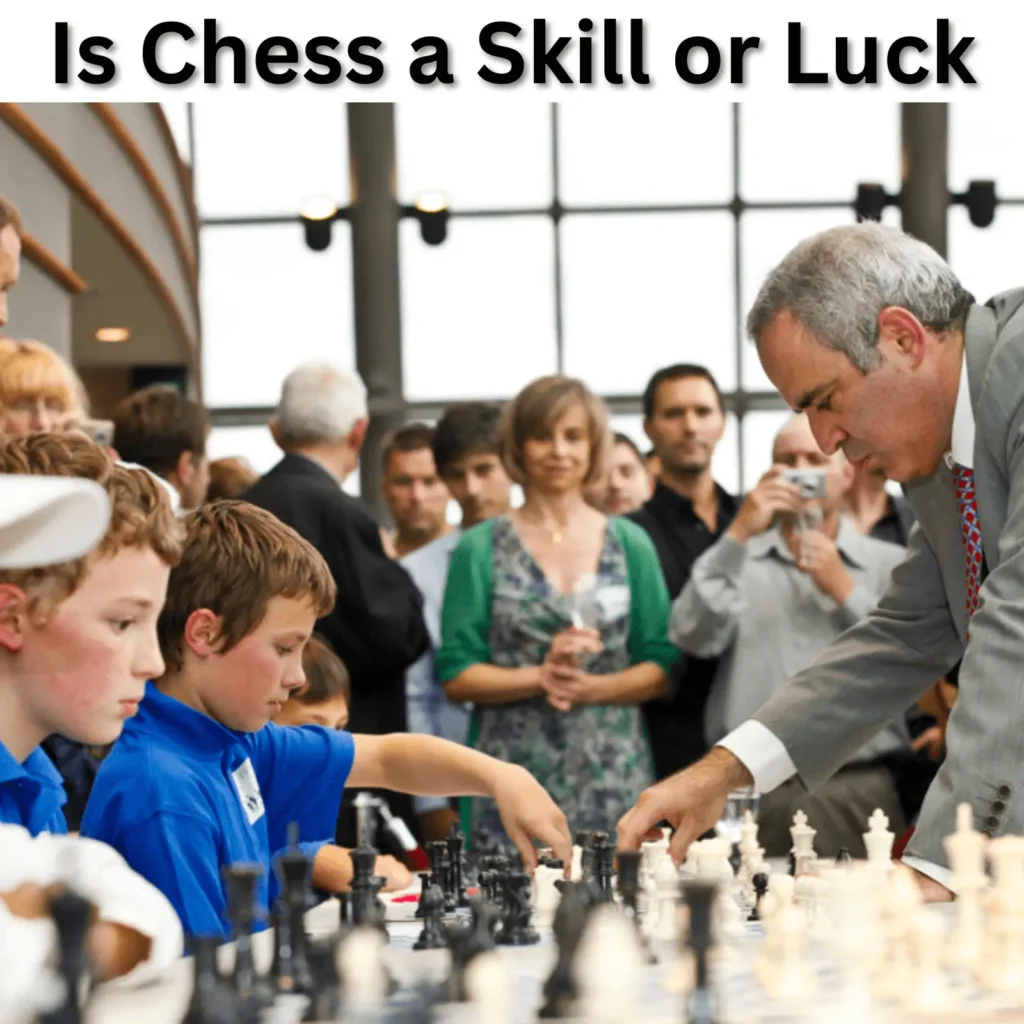
Leave a Reply